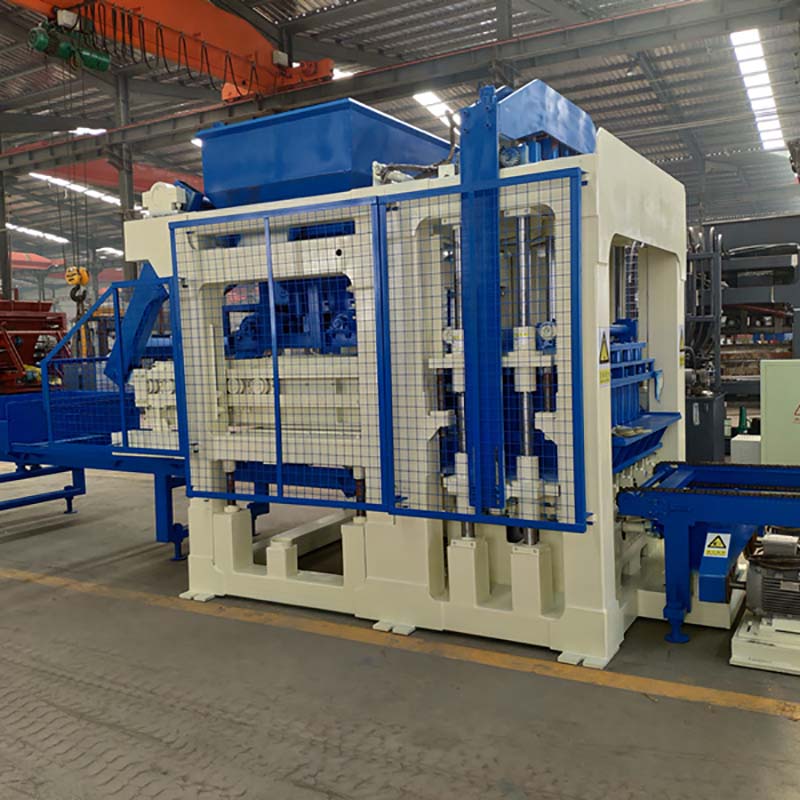
Image source:Aiwei block machine
Introduction
Chinese brick making machines have gained popularity in the global market due to their efficiency, affordability, and advanced technology. However, the performance of these machines can be influenced by various factors that need to be carefully considered and addressed. In this article, we will explore the key factors that influence the performance of Chinese brick making machines, including machine design, raw materials, operator skill, maintenance practices, and external factors.
Machine Design and Technology
The design and technology of a brick making machine play a crucial role in its overall performance. Chinese manufacturers have made significant advancements in machine design, incorporating automation, robotics, and advanced control systems to enhance productivity and efficiency. The design of the compaction system, mold, and conveyor system affects the quality and consistency of the bricks produced.
The machine’s power and motor specifications also influence its performance. Higher-powered machines can handle larger production capacities and heavier loads, resulting in increased productivity. Additionally, machines with advanced control systems allow for precise control over parameters such as compaction pressure, moisture content, and curing time, ensuring consistent brick quality.
Quality of Raw Materials
The quality of raw materials used in brick production directly impacts the performance of the machine. Chinese brick making machines are designed to work with various types of raw materials, including clay, concrete, fly ash, and sand. The properties of these materials, such as moisture content, particle size, and composition, can affect the machine’s performance.
Using high-quality raw materials that meet the specified standards ensures consistent brick quality and optimal machine performance. Chinese manufacturers often provide guidelines and recommendations regarding the suitable raw materials for their machines, enabling operators to achieve the best results.
Operator Skill and Training
The skill and experience of the machine operator significantly influence the performance of a brick making machine. Proper training and understanding of the machine’s operation, settings, and maintenance procedures are essential for achieving optimal performance. Operators should be familiar with the machine’s control panel, safety features, and troubleshooting techniques.
Chinese manufacturers often offer training programs and resources to educate operators on the efficient use of their machines. Ongoing training and continuous skill development contribute to improved productivity, reduced downtime, and consistent brick quality.
Maintenance and Servicing
Regular maintenance and servicing are vital for ensuring the long-term performance of Chinese brick making machines. Proper maintenance practices, such as cleaning, lubrication, and inspection of wear parts, prevent breakdowns, optimize performance, and extend the machine’s lifespan.
Chinese manufacturers provide maintenance guidelines and schedules for their machines, outlining the recommended maintenance tasks and intervals. Following these guidelines, operators can identify and address potential issues early, reducing the risk of major breakdowns and minimizing production disruptions.
Environmental Factors
Environmental factors can also influence the performance of Chinese brick making machines. Ambient temperature, humidity levels, and air quality can affect the curing and drying process of the bricks, as well as the performance of the machine’s mechanical and electrical components.
Extreme temperatures or high humidity can lead to longer curing times and increased energy consumption. Adequate ventilation and climate control measures in the production area can help maintain optimal conditions for the machine’s operation.
Infrastructure and Power Supply
The availability and quality of infrastructure, including power supply, can impact the performance of brick making machines. Chinese manufacturers design their machines to work with standard power supply specifications. However, variations in voltage, frequency, or stability of the power supply can affect the machine’s performance and may require additional voltage stabilizers or power backup systems.
Stable and reliable infrastructure, including sufficient water supply and appropriate drainage systems, is essential for consistent machine performance and efficient brick production.
Quality Control and Testing
The implementation of effective quality control and testing processes is crucial for maintaining consistent performance and product quality. Chinese manufacturers often have strict quality control measures in place to ensure that their machines meet the required standards and specifications.
These measures may include conducting regular inspections, testing samples of bricks produced by the machine, and adhering to international quality certifications. By following rigorous quality control procedures, Chinese manufacturers ensure that their machines consistently deliver high-quality bricks.
Conclusion
The performance of Chinese brick making machines is influenced by a combination of factors, including machine design, raw materials, operator skill, maintenance practices, environmental conditions, infrastructure, and quality control processes. Chinese manufacturers have made significant advancements in machine technology, allowing for increased automation, precise control, and improved productivity.
To optimize the performance of Chinese brick making machines, it is essential to select high-quality raw materials, provide adequate operator training, implement regular maintenance practices, and create favorable production conditions. By considering and addressing these factors, operators can ensure consistent brick quality, increased productivity, and the long-term reliability of Chinese brick making machines.
